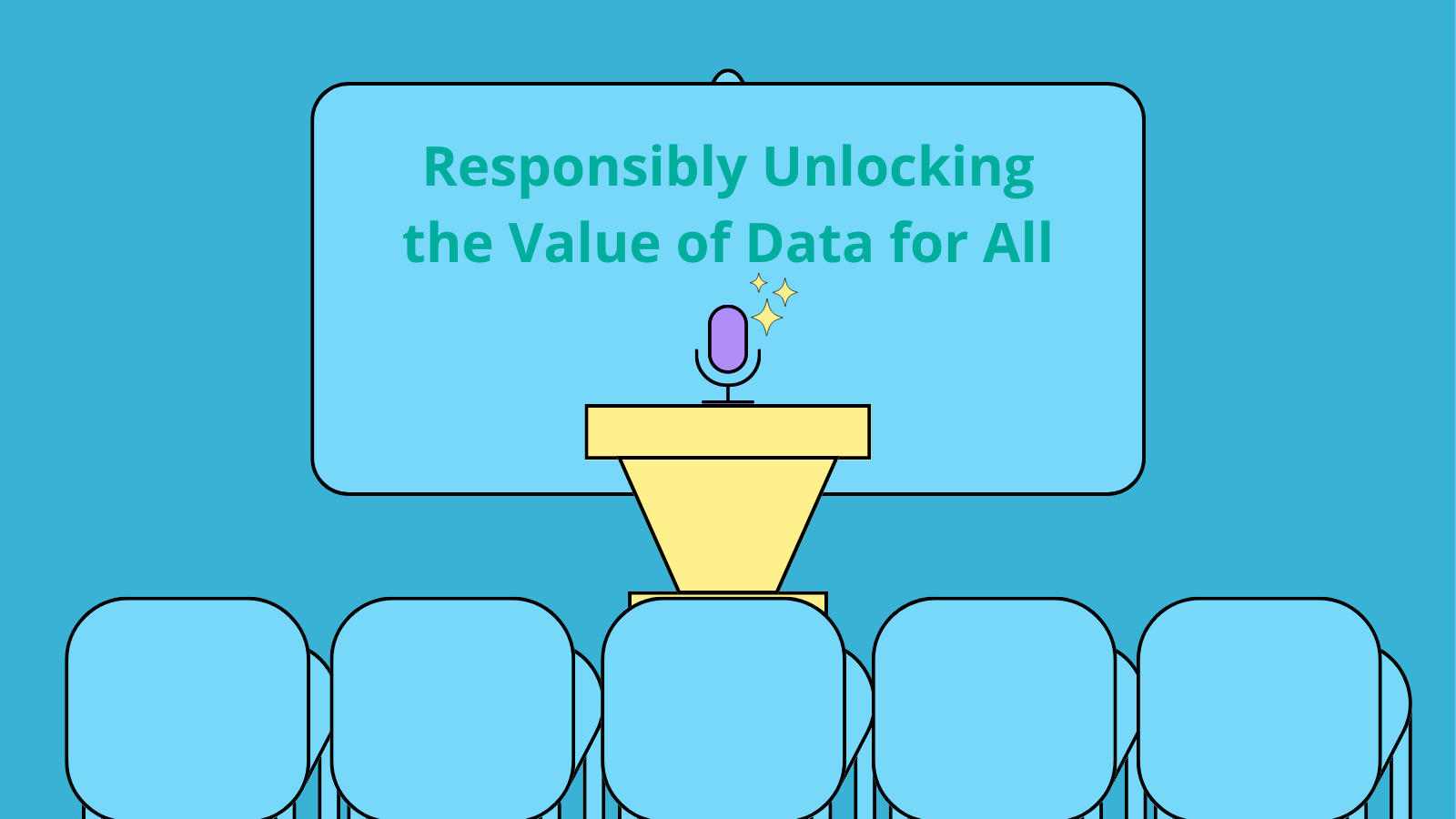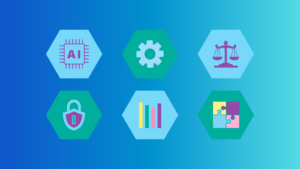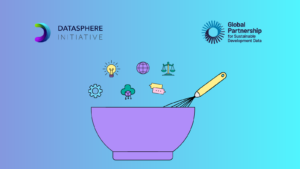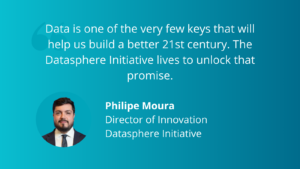On Friday, March 17, 2023, the Datasphere Initiative teamed up with Sciences Po Law School’s Towards a Digital Rule of Law Initiative, Aapti Institute and the Ostrom Workshop to organize an event: “Responsibly unlocking the value of data for all: Moving beyond the battle of narratives”.
The in-person discussions framed debate on how to address and compare different governmental approaches to data governance, and explored the bottom-up innovative efforts by a variety of actors to create operational data-sharing frameworks.
Participants were invited to share the work they are doing to responsibly unlock the value of data for all and their moonshot ambitions for shaping a data-driven future.
This blog reports on the key takeaways from the discussion and suggests areas for further action.
Data governance – A battle of narratives
The event began by framing the debate between the free flow of data and data sovereignty, as explored in the Internet & Jurisdiction Policy Network report We Need to Talk About Data. Panelists discussed how countries, and policy fora such as the G7, the G20 and the OECD, are approaching the issue of data governance, in overlapping oftentimes contradictory narratives and terminologies, around the free flow of data and data sovereignty. Speakers emphasized the need for nuance when framing data governance policy issues, highlighting the importance of taking into account different perspectives and avoiding oversimplification.

Outlining the competing models for data-sharing, speakers noted the European Union policies around adequacy and inadequacy. Participants highlighted the need to strike a balance between data protection and the benefits of data-sharing noting that encompassing privacy debates within every aspect of data governance can be limiting.
While data protection rules are often considered as part of the ecosystem for good data governance, some countries have still not adopted national legislation. In fact, some participants stressed that various countries face a lack of trust in legal institutions. This points to the need for data governance efforts to strive towards building trust beyond legislation and promote data sharing and collaboration.

The overlap and lack of clarity around data legislations are also impacting businesses who can find themselves stuck in the middle of clashing regulatory frameworks and a patchwork of compliance requirements. Participants highlighted that a lot of emphasis in discussion around data is put on personal data and privacy. Non-personal data itself can also be the source of enormous value creation.

The discussion also emphasized the importance of investing in digital and data literacy skills. Infrastructures, including public infrastructure such as the public cloud, are also important to advance and accelerate data sharing. Many countries, especially in the Global South are yet to fully leverage the value of data derived from their own economies and national contexts.

While consensus-based approaches to data governance can be challenging, participants noted further dialogue as an important way forward to align stakeholders in any type of data-sharing model across geographies and sectors.
Models for unlocking the value of data for all
A key call to action throughout the second session was the need for data and its value to be better understood. While data is becoming a ubiquitous part of life, with organizations, governments and individuals using it for a wide variety of purposes, its value and purpose are not always clear for communities and governments that seek to leverage it.

With the increasing amount of data being generated, there is a need to understand its purpose and how it can be used for the benefit of society or specific communities.

Data cooperatives and other forms of communities and stewards of data were noted as an example of ways to support bottom-up data-sharing and collection. In this context, defining what is important to people and communities is a prerequisite for unlocking the value of data for all.

Speakers also underscored the importance of bringing social science into the debate on data-sharing. Working on data-sharing frameworks with communities directly that enable better decision-making. Community engagement relies on asking the right questions and providing a space to learn and listen to community needs and perspectives.


On the technical level, acknowledged as a foundational component of responsible data-sharing, homomorphic encryption, a tool which allows the copying of unencrypted data, was provided as an example of scaling responsible data use and sharing. While this technology has only recently been enabled and is still too slow to be used in many cases, developers remain hopeful that it can be widespread in the future. Participants called for more dialogue on how these types of technologies and privacy-enhancing technologies (PETs) can be leveraged and used hand-in-hand with policy-making frameworks.

Moonshot ambitions
In the final session, participants shared their moonshot ambitions for data governance and outlined ways to support current efforts and initiatives in a common way forward. A couple of key takeaways surfaced from the exchange and offer areas for further action:
1. Change the narrative
The data governance discourse is often limiting. Participants called for approaches to data to move beyond restricting concepts like “consent” and “data sovereignty” and find a bottom-up empowering narrative to articulate data and its relationship to individuals, communities and society.
2. Test policies and technologies before they are enacted
Discussion underscored the need for evidence-based policymaking in data governance approaches. There should be more opportunities for regulators to connect with other stakeholders to discuss how to create better policies. Testing regulatory initiatives with innovators as well as technology solutions in safe environments such as sandboxes can lead to more future-proof solutions. The Datasphere Initiative Report Sandboxes For Data (2022) supports this ambition.
3. Foster diverse community movements
Participants emphasized the power of communities and local movements behind data infrastructures and frameworks. Data governance approaches that are bottom-up fit for purpose and rely on community insights and needs will be key in driving diversity, ethics and inclusion.
4. Use language that is more understandable
To further inclusivity in data governance exchanges, participants suggested moving away from purely expert language and using more understandable language for a wider audience. The all-consuming use of English for data policy terminologies is also providing challenges to translate and communicate among regions and efforts to create tools such as glossaries could help address these gaps.
5. Build a common vision
Many participants called for action to unite individuals and organizations working on data governance around a common vision and outlook for the future. This was emphasized as related to building trust and connecting silos which can serve as the foundation for a more equitable data ecosystem.
What’s next?
The event highlighted the need for prioritizing nuance, diversity and trust and community-building to guide forthcoming discussions and engagement with policy-making efforts across the world. As data governance continues to evolve, it is essential to prioritize bottom-up approaches that are focused on equity distribution. Looking forward, the Datasphere Initiative plans to continue organizing these types of dialogues and exchanges in 2023. Efforts will seek to expand – and make more accessible and actionable – Datasphere Initiative work around the Datasphere Governance Atlas, in order to further collaboration and connectivity between the vast number of actors working on the multidimensional issue of data governance.




